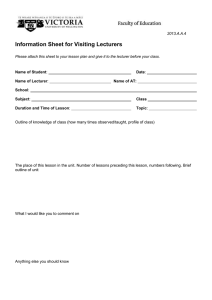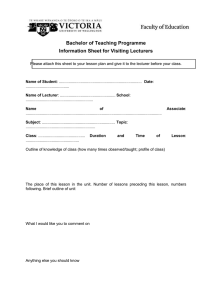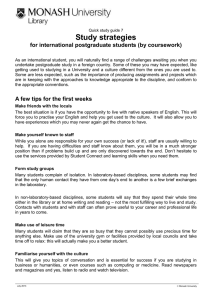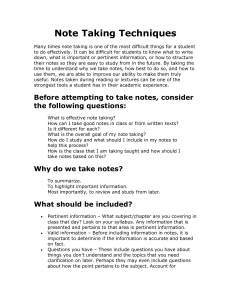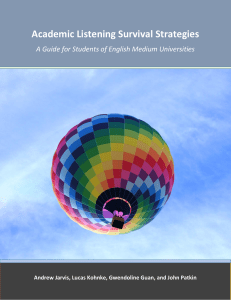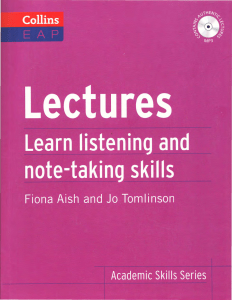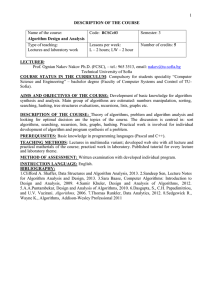Revision strategies and memory techniques : Skills Hub: University
advertisement
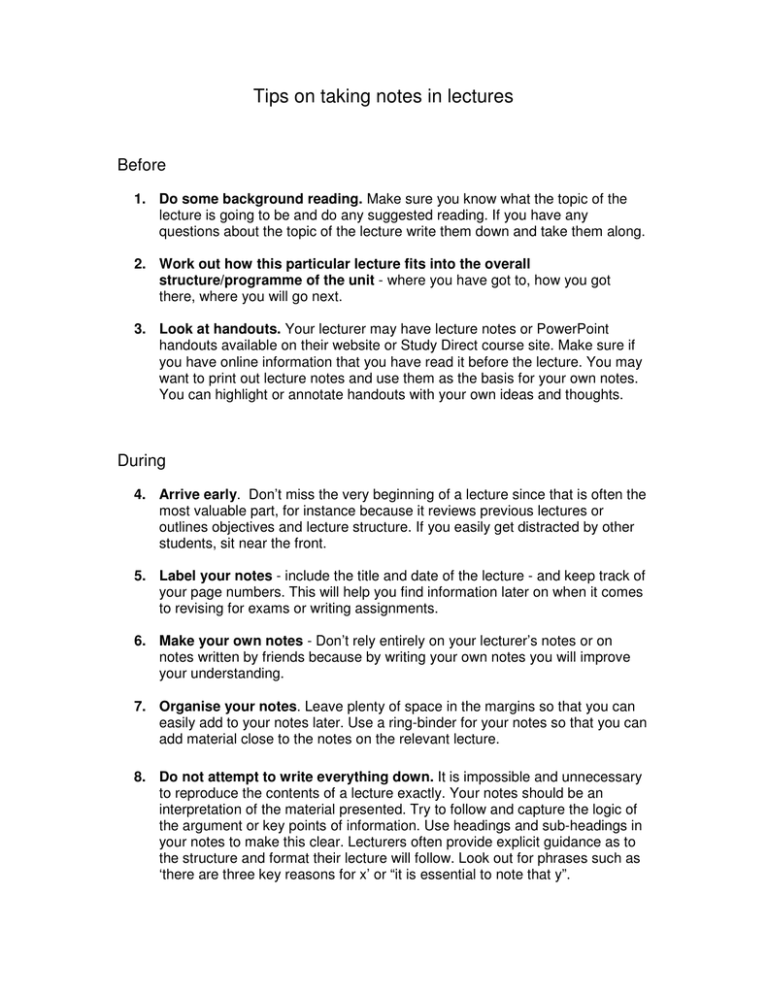
Tips on taking notes in lectures Before 1. Do some background reading. Make sure you know what the topic of the lecture is going to be and do any suggested reading. If you have any questions about the topic of the lecture write them down and take them along. 2. Work out how this particular lecture fits into the overall structure/programme of the unit - where you have got to, how you got there, where you will go next. 3. Look at handouts. Your lecturer may have lecture notes or PowerPoint handouts available on their website or Study Direct course site. Make sure if you have online information that you have read it before the lecture. You may want to print out lecture notes and use them as the basis for your own notes. You can highlight or annotate handouts with your own ideas and thoughts. During 4. Arrive early. Don’t miss the very beginning of a lecture since that is often the most valuable part, for instance because it reviews previous lectures or outlines objectives and lecture structure. If you easily get distracted by other students, sit near the front. 5. Label your notes - include the title and date of the lecture - and keep track of your page numbers. This will help you find information later on when it comes to revising for exams or writing assignments. 6. Make your own notes - Don’t rely entirely on your lecturer’s notes or on notes written by friends because by writing your own notes you will improve your understanding. 7. Organise your notes. Leave plenty of space in the margins so that you can easily add to your notes later. Use a ring-binder for your notes so that you can add material close to the notes on the relevant lecture. 8. Do not attempt to write everything down. It is impossible and unnecessary to reproduce the contents of a lecture exactly. Your notes should be an interpretation of the material presented. Try to follow and capture the logic of the argument or key points of information. Use headings and sub-headings in your notes to make this clear. Lecturers often provide explicit guidance as to the structure and format their lecture will follow. Look out for phrases such as ‘there are three key reasons for x’ or “it is essential to note that y”. 9. Indicate any points you do not understand or questions - follow these up through individual research, in tutorial or during the office hours of your tutor. 10. Include details so that your notes will make sense to you when you come back to them again. Write down any specific examples given that will help you remember key points and sufficiently label graphs, tables or charts. 11. Don’t leave early. The last 10 minutes or so of a lecture is when the lecturer may help you enormously by repeating points, drawing out conclusions and summarising material. Tip If you have never been to a lecture before you might not be sure about how to behave. You are expected to switch off your mobile phone and not talk to friends during the lecture. If you wish to record the lecture you should ask permission from the lecturer. Some lecturers may record their lectures and make them available for you via Study Direct. After 12. Look up new terms - check spelling, meaning and appropriate use. 13. Review your notes as soon as possible after the lecture. These notes should provide the foundation upon which your understanding can be built. Here are some useful questions you can ask yourself about your notes: • Have you accurately recorded all main points? • How were these developed? • How do they relate to each other? • Which issues were clarified for you? • What will be discussed in the next tutorial/seminar? • How could the material be summarised into only one paragraph? Actually do this summarising exercise if at all possible! • Jot down questions you still have and talk about these in classes. 14. Reflect on your notes. Lectures are not an end in themselves but a means to understanding. Since they are usually a one-way process, using and discussing your notes with fellow students will help you understand your lectures more fully. 15. Avoid recopying your notes several times to make them neater – this wastes time, and can be avoided by making good notes in the first place. However, it is sometimes useful to type up your lecture notes because this can help you reflect on the lecture and reinforce what you’ve learnt.
